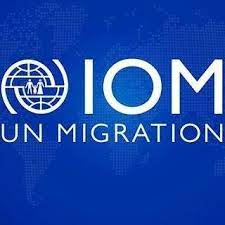The International Organisation for Migration (IOM) has said it will support at least 33 000 migrants as part of its drive to provide safe and decent lives to the usually vulnerable returning migrants.
In a statement, IOM communications officer Fadzai Penny Nyamande-Pangeti said the project activities will see support to migrants through a response at Zimbabwe’s main border posts like Beitbridge, Plumtree, Forbes and Chirundu.
“Activities will also take place at inland mobility corridors including Masvingo, Bulawayo, Chimanimani, Mutasa, Chipinge, Kariba and Karoi where IOM has presence. The project will be implemented in coordination and partnership with the government of Zimbabwe, particularly the ministries of Home Affairs and Cultural Heritage and Public Service Labour and Social Welfare and other relevant line ministries to meet the basic needs of returned migrants,” said Pangeti.
This comes at a time, the European Commission’s humanitarian arm has offered to fund IOM Zimbabwe for over 12 months to strengthen protection services and post-arrival assistance to migrants and Flow Monitoring (FM) activities, border communities, and congregation points through data collection and analysis on migration trends.
Pangeti said IOM is set to conduct data collection activities to identify and prioritise areas with limited capacities for emergency preparedness and response.
“The information collected will culminate in the production of a Migration Profile for Zimbabwe, a much needed and up to date repository of migration information in collaboration with the Zimbabwe National Statistical Agency (ZIMSTAT). Under this project IOM will continue to support returnees who have faced adversity during migration with Information Counselling and Referral Services (ICRS) taking into regard the gender, age, and disability dimensions of mental health.”
Pangeti noted that the project builds upon the work that IOM has been doing for several years to collect data on flows of people across Southern Africa.
“Through its Displacement Tracking Matrix (DTM) tools, IOM has been actively working with national and local authorities in order to gain a better understanding of population movements in the country and in the region. Quantifying migration and mobility patterns is essential for the development of adequate migration policies, disaster preparedness and humanitarian programming,” said Pangeti.

